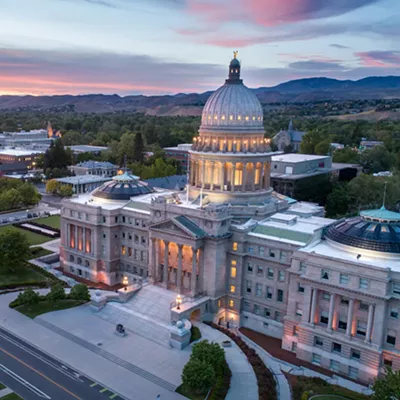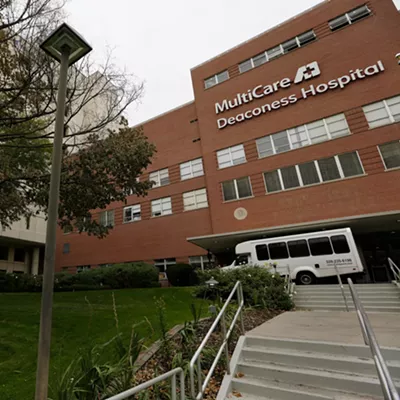Shortly before midnight last Thursday, Washington state lawmakers wrapped up their 60-day session with a modest budget in tow and few major policy changes under their belts.
This time around, "expectations for broad, sweeping change weren't really in the cards," says Rep. Marcus Riccelli, D-Spokane.
In all, lawmakers passed 237 measures this session. Gov. Jay Inslee has until April 5 to act on them. Here's a recap of some of things lawmakers did — and didn't do — over the past two months.
What they did
Toward the beginning of the session, lawmakers passed a bill allowing undocumented high school students to apply for state college aid. Called the DREAM Act by House Democrats and Real Hope Act by Senate Republicans, the bill was signed into law last month.
"The DREAM Act was a significant accomplishment for helping our state to move forward," Sen. Andy Billig, D-Spokane, says. "Not only individually, to help the Dreamers be successful for their own sake, but to be able to contribute to our community and our economy in the future."
Lawmakers approved measures banning tanning-bed use for minors, sealing juvenile-court records, regulating drones by public agencies and allowing law enforcement to seize firearms from domestic violence perpetrators.
Three bills Riccelli sponsored also passed, including a measure requiring hospitals to submit blood samples for newborn screening tests within 48 hours.
"We haven't been doing a great job in the state in getting the results back to providers and parents," he says. "A lot of those disorders can be treated in the first couple weeks."
Billig's bill requiring state agencies to avoid purchasing products that contain polychlorinated biphenyls, a toxin often found in yellow road paint, was also passed, as were three proposals by Rep. Kevin Parker, R-Spokane, including a measure expanding the definition of "sex offense" to cover sex traffickers.
"I'm told we're the first state in the country requiring this for human traffickers," Parker says. "We have to assemble a model for which to identify them as traffickers because it does not exist anywhere else in the country."
At the 11th hour on the last day of the session, lawmakers agreed to make in-state tuition available to all military veterans, regardless of how long they've lived in Washington. They also approved a four-year extension on a real-estate registration fee to help fund homeless programs.
The legislature also passed a $155 million supplemental operating budget that includes additional funding for K-12 books and supplies ($58 million), community mental health services ($20 million) and Washington's Opportunity Scholarship program ($25 million) for low- and middle-income students interested in science and technology careers.
In addition, Sen. Michael Baumgartner, R-Spokane, notes that for the second year in row, college tuition has remained steady.
"Because of the good work we did last year in the budget, we came in this year with the surplus," Baumgartner says. "I don't know why the other Washington can't find a way to do a balanced bipartisan budget."
What they didn't do
After months of negotiations, lawmakers couldn't agree on a multibillion-dollar transportation package. Republicans in the Senate blamed Inslee for promising to impose a carbon fuel emission tax, which could increase the cost of gasoline, while Democrats criticized the Senate majority for failing to bring a package to the floor for a vote.
"We worked hard for a package that would have included funding to get the North Spokane Corridor to I-90 and invest in transit, bicycle and pedestrian infrastucture. That was my goal going in, to a pass a transportation revenue package that did those things," Billig says.
For the first time since 1996, lawmakers couldn't agree on a supplemental capital construction budget. "That's a huge disappointment for me," Riccelli says. "Our supplemental capital budget is always what I would say is our jobs package. ... It puts people to work."
The legislature also tabled bills dealing with mental health civil commitments, teacher evaluations and a measure merging the recreational and medical marijuana industries.
Baumgartner was disappointed that his bill designating electricity generated by Spokane's Waste-to-Energy Plant as a renewable resource was passed up, as was his proposal addressing oil-by-rail transportation safety. Billig says he would have liked to have seen his campaign finance transparency bill brought to the Senate floor.
Two opposing gun-related initiatives — Initiative 594, which would expand background checks, and Initiative 591, which would prevent further background checks — did not advance to the House or Senate floors. Both initiatives will be on the November ballot. ♦























